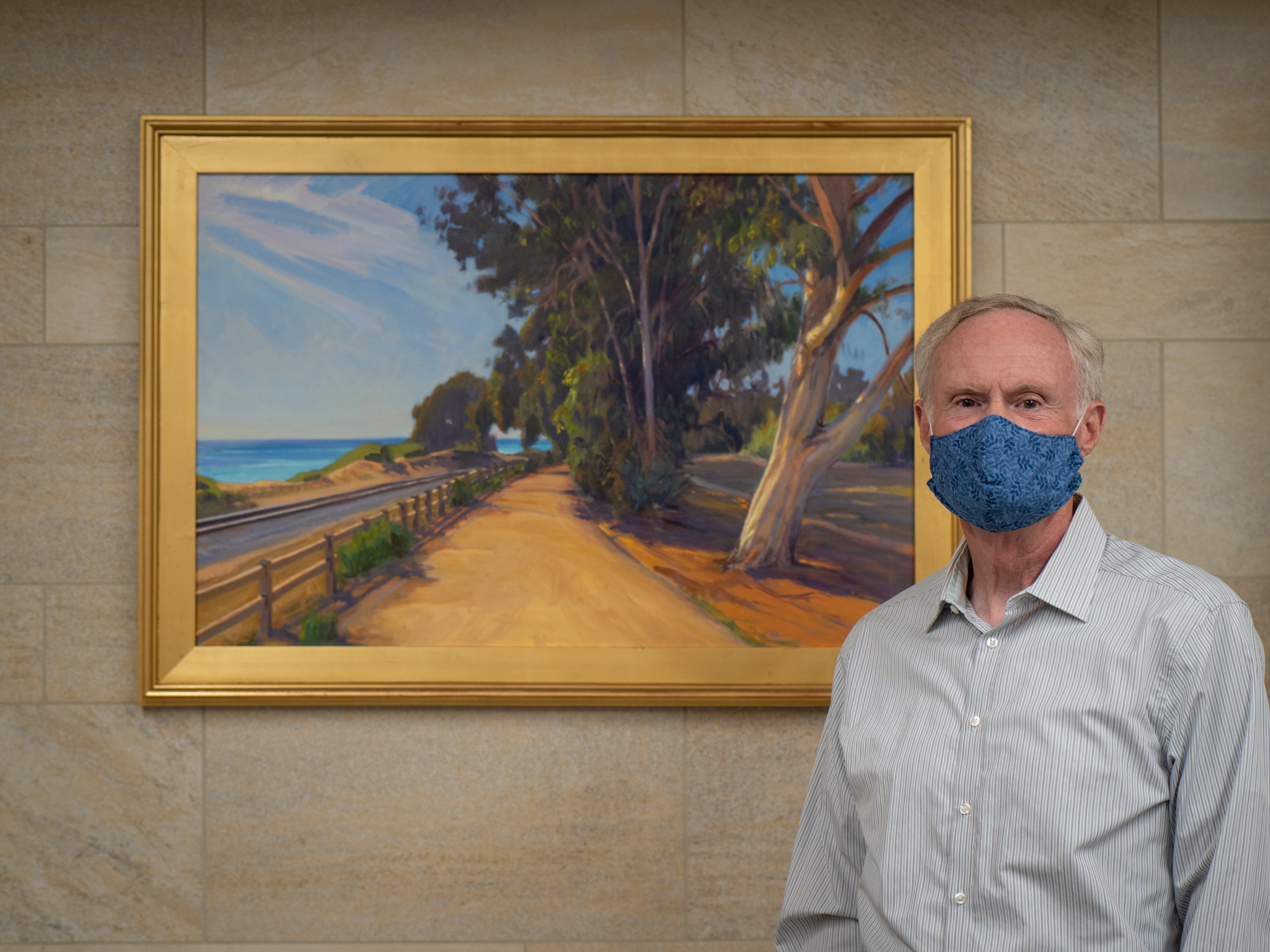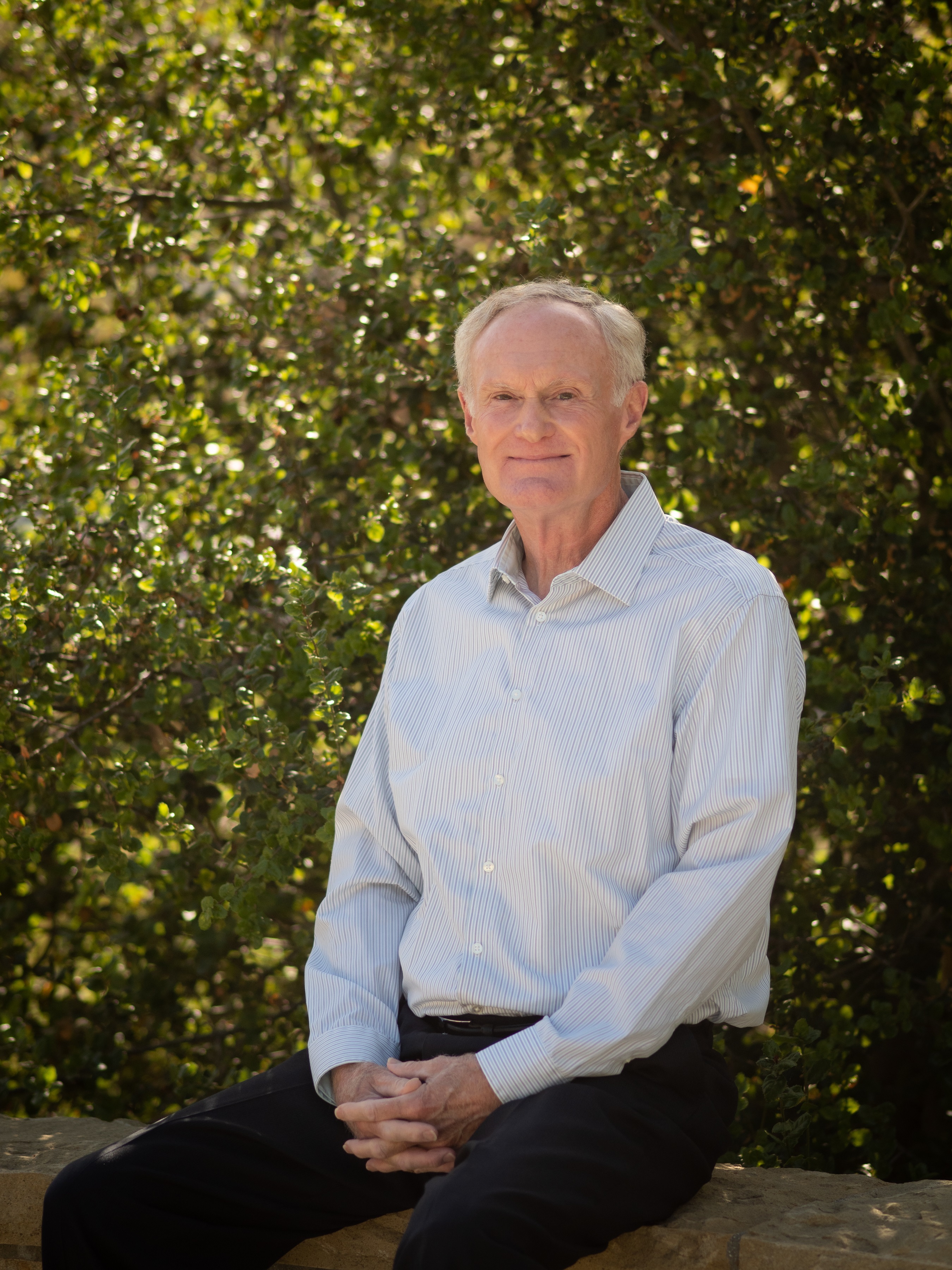Nov 15, 2021, 12:32
by
GoodHealth Magazine
Patient Michael Miller had no idea his life would be
changed by pancreatic cancer until a case of jaundice
revealed a tumor was constricting his bile duct. He
required a physician team to relieve his symptoms and
investigate the cancer. Gastroenterologist Vincent DeRosa,
MD performed a stent procedure to release the bile and allow
it to pass out of the liver properly. Fellowship-trained surgical
oncologist William Charles Conway II, MD, FACS began
to examine Michael’s pancreatic tumor. When pancreatitis
(inflammation of the pancreas) set in, Dr. Conway carefully
monitored the 69 year-old’s medical condition and worked to
determine the way forward. Michael’s pancreatitis was virulent,
painful and had affected his ability to absorb nutrients. Dr.
Conway believed Michael needed surgery as soon as he could
gain some weight. A Whipple procedure is an extremely
complex operation. Outcomes are best with a surgeon who
performs many of these procedures, like Dr. Conway. “I felt very lucky to have this option available in a smaller community
like ours,” admits Michael. “Traveling would not have been
easy at the time.”
Michael’s surgery by Dr. Conway was deemed a success, however
he would still require chemotherapy and radiation

therapy to
protect against any lingering cancerous cells. Dr. Conway joined
forces with Ridley-Tree Cancer Center medical oncologist and
hematologist Mukul Gupta, MD to manage his care alongside
a team of specialists who would discuss his case — a process
common for a multidisciplinary cancer center like Ridley-Tree.
Slightly more common in men than in women, pancreatic
cancer has the highest mortality rate of all major cancers, and is
currently the third leading cause of cancer-related death in the
U.S. after lung and colon cancer. A former Raytheon electronic
warfare systems engineer familiar with project management, Michael knew he’d need the unique perspective of each person
on his medical team to fight this serious diagnosis. “I had an
opportunity to ask questions and learn more, and get another
expert’s opinion,” he explains about their collaborative process.
When weekly infusion chemotherapy began, so did the tricky
job of maintaining his nutritional status with a compromised
pancreas. Michael consulted with oncology nutritionist Sarah
Washburn, MS, RDN, CSO on which medications might
impact his nutrition, and how to use food to minimize side
effects from treatment. He also underwent genetic testing to
find out if a genetic mutation could have caused his cancer.
About ten percent of the estimated 57,000 adult cases of
pancreatic cancer diagnosed in the U.S. each year are thought
to be hereditary. Danielle Sharaga, MS, LCGC, a genetic
counselor at Ridley-Tree, reviewed the results which exposed
one gene mutation found in a small percentage of familial
pancreatic cancer cases. This gene mutation also confers a moderately increased risk for breast cancer (24-48% lifetime
risk) in women, something Michael was able to share with his
two daughters. Leading Michael’s course of radiation therapy,
Radiation Oncologist George Cheng, MD, PhD patiently
answered his queries about the methodology, and didn’t mind
debating the finer points of electromagnetics as they related to
his care. With COVID-19 in full swing and visitor restrictions
in place due to infection control, the entire radiation therapy
team stood in for Michael’s wife, Bekki, across 28 visits, “a
remarkable group to me, always positive,” he recalls.
Michael describes his cancer experience like a fast-moving train,
each stop arriving quickly without time to review the

itinerary.
A painting by local artist Arturo Tello of a railroad track with a
road alongside it sparked a pondering of his own road to wellness.
“I thought, ‘That’s where we’re headed. There may be rough
spots, but that’s where we’re going.’” The phrase “on the road to
wellness” stuck and he made it his regular salutation shared with
his medical team members who became like family. “Everybody
is expecting you to recover. You can feel it. I did not have to
struggle to find the best people. They were all right here.”
Photo caption (top): Rhodes-Fleming Path, Carpinteria Bluffs, a gift from artist Arturo Tello,
that inspired Michael Miller’s road to wellness.
Photo caption (bottom): Michael Miller